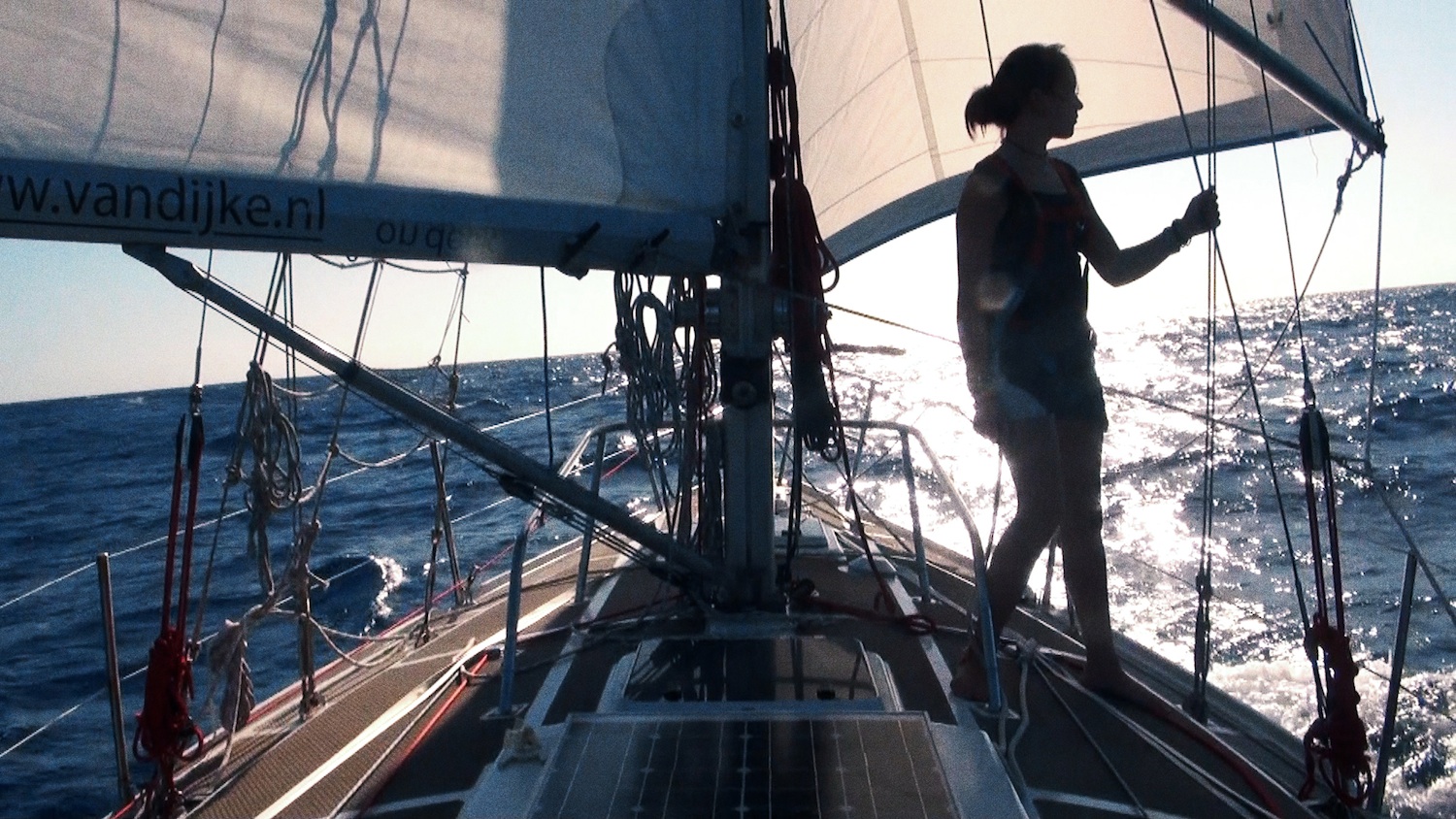
You may remember this news story from about five years ago: a 13-year-old Dutch girl, Laura Dekker, wanted to sail around the world on her own. Her family had a deep connection to boats and the sea — Laura was even born on a boat — but the Dutch government intervened and attempted to block her from going. She prevailed and set out, 14 by then, for what would become a two-year-long, 27,000-mile trip that would take her around the globe and beyond.
What you won’t remember, though, because the fact didn’t make it into the general discourse about whether Dekker should be allowed to undertake the trip, is that Laura Dekker had a camera with her. In a collaboration with first-time director Jillian Schlesinger (who was not on board the ship but met up with Dekker at a few stops along the way), the young sailor recorded the bulk of the footage for what is now Maidentrip, a documentary about the trip that arrives in theaters on Jan. 17.
(MORE: Is 13 Too Young to Sail Around the World Solo?)
In any case, whether or not you remember the initial news reports, Jillian Schlesinger does. They’re how she found Dekker in the first place. “It seemed like there were lots of opinions represented but it didn’t seem like Laura’s voice was represented anywhere,” the filmmaker says of reading about the 2009 court fight. As with many narratives about extreme endurance or precocious ability, Dekker’s story seemed destined to be either an inspiration to others or a cautionary tale — which, Schlesinger felt, didn’t do justice to the details of this particular voyage. She contacted the generally media-averse Dekker, who was eventually convinced that the idea might work, about correcting that problem. “The whole idea,” she says, “was that we were both embarking on something we hadn’t done before.”
The end result isn’t quite a found-footage documentary — Schlesinger did make suggestions for things like voice diaries that Dekker could record, though she was careful not to interfere — but neither is it the traditional filmmaking model. The director surrenders much of her control, over the physical camera and what it captures, in exchange for unfiltered access to her subject and a collaborative result. Dekker’s one-on-one relationship with the camera provided a glimpse at the kind of personality that a person has to have in order to want to do something so extreme.
What it doesn’t provide, says Schlesinger, is a larger lesson. Although much of the conversation about Laura Dekker has been about how old a person has to be, in general, to be allowed to put his or her life at risk in such an unusual way, the filmmaker — who developed a close relationship with Dekker — cautions viewers from drawing larger conclusions from Maidentrip and its story.
“It’s difficult to apply anything from Laura’s story to anything about young people being involved in such extreme activities. The reality is Laura is a truly exceptional human being with a very particular set of skills and life experiences that allow her to be able to do this very safely and very skillfully,” Schlesinger says. “It’s a very celebratory and positive representation of her story, but it’s uniquely about her and it doesn’t make an argument about what’s possible for other people.”
The filmmaker came to the conclusion that those who felt strongly about Laura Dekker’s decision were reacting as if it were themselves or their children setting out to sea, not Laura Dekker specifically. And, though Schlesinger’s direction never really questions Dekker’s right to raise anchor, that celebration of her abilities reads as honest in a not entirely flattering way. For example, being alone for months at a time seems to leave Dekker, already content with solitude, less willing to go put up with the demands of polite tact and social interaction. Then again, lest we forget, she’s only 14 and that her prickliness may be adolescence rather than the damaging effect of removal from society. The end of the film reinforces Dekker’s out-of-the-ordinary persistence and personality — and underlines one of the movie’s messages.
“It was the right thing for her to do,” says the director. “I hope that the film has a very clear message of don’t try this at home.”
More Must-Reads From TIME
- The 100 Most Influential People of 2024
- Coco Gauff Is Playing for Herself Now
- Scenes From Pro-Palestinian Encampments Across U.S. Universities
- 6 Compliments That Land Every Time
- If You're Dating Right Now , You're Brave: Column
- The AI That Could Heal a Divided Internet
- Fallout Is a Brilliant Model for the Future of Video Game Adaptations
- Want Weekly Recs on What to Watch, Read, and More? Sign Up for Worth Your Time
Write to Lily Rothman at lily.rothman@time.com